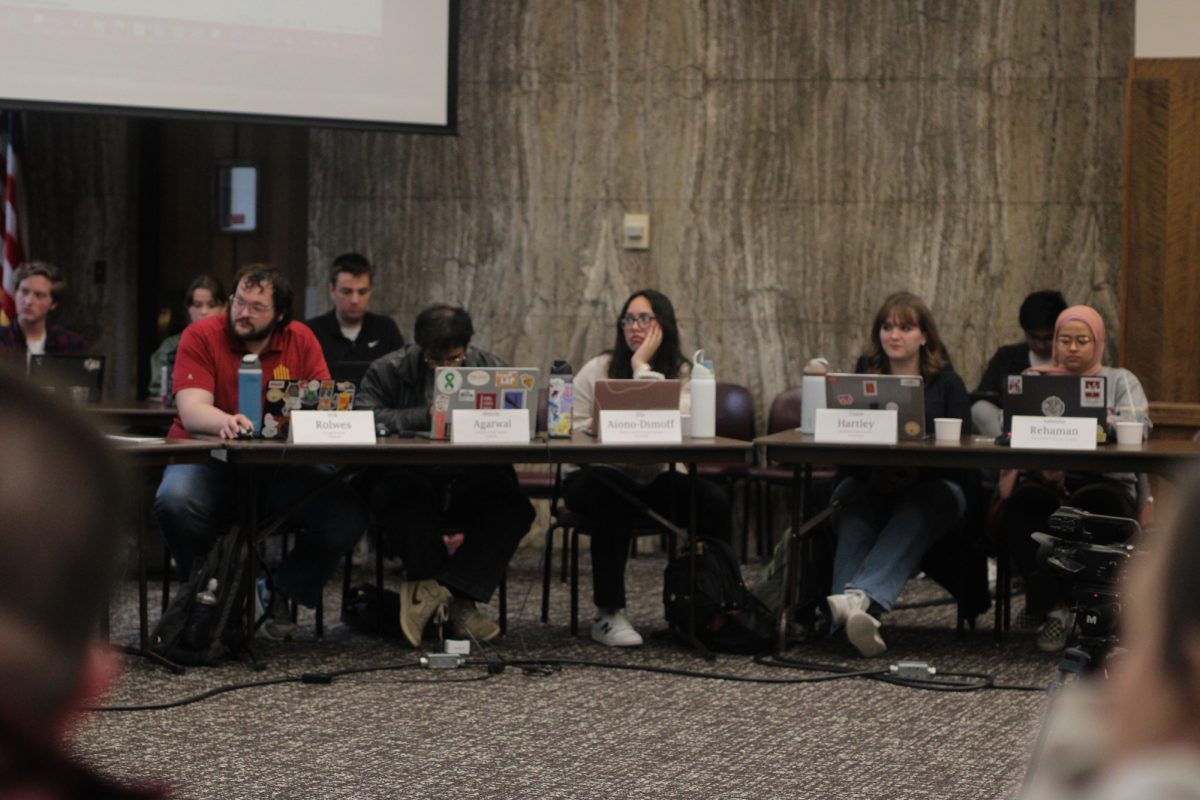AIDS assistance bumpy, yet important road
June 19, 2003
Although the number of people living with HIV/AIDS in Iowa has increased in the past few years, AIDS service organizations are continuing to provide support to those affected by the disease.
“Right now, I can manage very well,” said Janelle Durlin, coordinator of the living with HIV program in Ames.
The Living with HIV program is under the umbrella of Mid-Iowa Community Action organization, and covers many counties in central Iowa, including Story County. The program provides support and practical help for those living with and affected by HIV.
Durlin said if about ten more people required her help, it might be more than one case manager can handle. She said she currently manages about 15 cases in Story County.
The number of cases of people living with HIV/AIDS increased from 1044 cases in 2001 to 1123 cases in 2002, a 7 percent increase, said Randy Mayer, HIV/AIDS surveillance coordinator for the Iowa Department of Public Health.
“The percent increase is about the same every year,” Mayer said.
Holly Hanson, coordinator of the Ryan White Title II program, which mainly provides drug assistance to those living with HIV/AIDS in Iowa though the AIDS Drug Assistance Program (ADAP), said there has not been enough increase in funding to provide for the increase of clients her program serves.
“Funding hasn’t gone down, [it has] remained steady whereas caseloads have increased some,” she said. “We’re trying to do more on the same budget.”
Durlin said funding is always an issue with AIDS assistance programs.
“More money would always help,” she said.
A main concern for Durlin is fundraising for emergency finances, she said. This fund is used to pay rent, utilities, or possibly obtain groceries for Durlin’s clients. It is constantly low, because funds are used consistently, she said.
Another problem is finding an infectious disease specialist in the Ames area, Durlin said. A doctor previously based in Ames, Ratna Samy, recently moved his practice out of the area.
As many as 50 of Durlin’s clients now have to travel to Des Moines or Iowa City to see a specialist.
Ruth Beyerhelm, case manager for the Iowa Center for AIDS Resources and Education (`ICARE) based in Iowa City, said she has faced problems because her organization is one of two in Iowa that is private and independent.
“We basically raise all of our own money to sustain the organization,” Beyerhelm said.
Finances are a concern for ICARE because of the current weak economy, she said.
“A major challenge for us and a lot of non-profits is financial,” Beyerhelm said. “It gets real tight when things are tough with the economy.”
People have less disposable income to donate to her organization as a result of the economy, she said.
“It will either make or break us,” she said.






